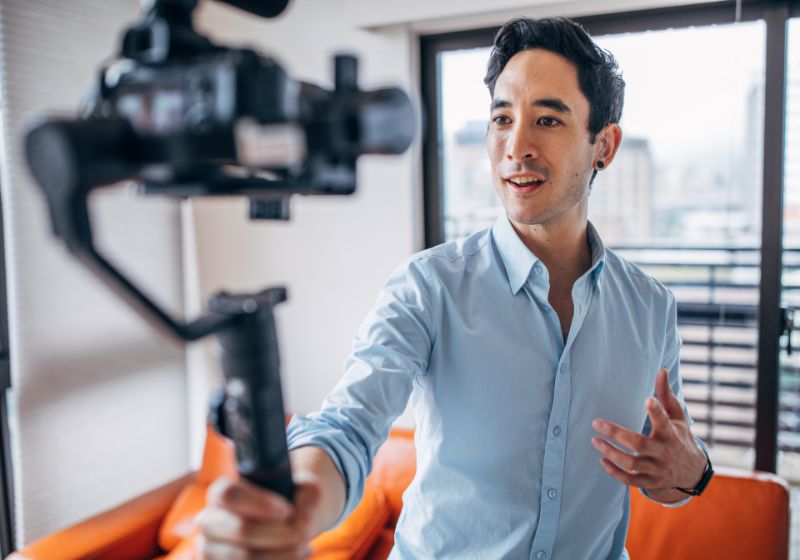How To Promote Event on Social Media

Promote Event On Social Media. Social media strategies for events don’t set you apart from others; however, having a good one does.
In this blog post, I will give you tips on promoting events on social media.
Whether your event is live or offline, B2C or business to consumer, there are tricks to creating an event social media strategy that gets you noticed, drives ticket sales, and engages attendees.
If you want to know how to post fantastic content, read on to learn how to get the most out of social media.
How To Promote Event on Social Media

- How To Promote Event on Social Media Before The Event
- How To Promote Event on Social Media During The Event
- How To Promote Event on Social Media After The Event
How To Promote Event on Social Media Before The Event
- Identify Your Target Audience & Ideal Social Media Platform.
- Create an Event Hashtag
- Get Event Influencers
- Practice Brand Consistency
- Practice Good Content Marketing
- Teaser Campaign
- Sell Tickets Online
Identify your target audience & Ideal Social Media platform.
Before the start of an event, your social strategy should prioritize reach, connection, and engagement. Before posting, consider who you want to reach and what platforms will best connect them to you.
Don’t try to reach everyone; that’s a waste. Instead, think about who you want to engage with and what platforms will help you get there.
Your target audiences’ demographics and events give you important information about where to focus your efforts.
Use these examples and techniques to help pinpoint your target audience, and discover their most-utilized social platforms:
- For example, discover Marketing Experts are looking for career growth on LinkedIn.
- Find image-oriented galleries looking for donations on Instagram.
- Concentrate your audience research effort on Facebook if your audience is older.
- Look at engagement on all your company’s platforms or clients’. And focus your promotional efforts on top-performing social platforms.
- Research direct competition or non-competition going after a similar target market: Which of their platforms generates the most engagement for them.
Your target audience’s demographics and events give you valuable information about where to concentrate your efforts.
An all-business seminar needs a hashtag to help attendees remember what happened at the event. Likewise, an energetic event with more personality should have a hashtag to keep them engaged.
These hashtags aren’t just for social media posts. You can also use them when posting about the event on other platforms like Facebook, Twitter, Instagram, LinkedIn, etc.
Create a Hashtag
Generate buzz with hashtags. A memorable hashtag is #VeryNecessary, and you want it consistent with your branding.
- A conference hashtag should be short and sweet.
- A long hashtag will not get any attention.
- A catchy hashtag will help you reach your target audience.
If you plan to promote your event through social media, you must choose a hashtag to attract your followers.
Ask your attendees to share their experiences at your event using #yourconferencehashtag.
You can create hashtags to help spread awareness about an event, product, or service. Hashtags are a great way to get people talking about your event.
Social media platforms like Twitter and Facebook allow users to create hashtags you can use across all their social channels and use them to promote events or campaigns.
A Hashtag can build reach and community when it crops up on sponsors’ websites, digital newsletters, and email signatures.
Get Event Influencers.

Invite Influencers that Your Event Target Audience Follows. Find influencers who have built their reputation with your event target market.
Influencers tools are available at a variety of price ranges. Depending on your audience size, you may want to assemble a small list of 25 influencers.
Start at the bottom half of the list with influencers who might be easier to get.
Reach out and explain who you are, what you’re looking to get from them, and consider reaching out to the influencers you’ve enjoyed the most.
Don’t forget your speakers. They may already be popular with certain segments of your audience.
Create posts or images that are flattering to your speaker. They’ll be happy to share those with their network of fans!
Practice Brand Consistency
Brand consistency is important when trying to get your message out there. You need to keep your branding consistent across all platforms. For example, if you have a Facebook page, Twitter account, Instagram account, YouTube channel, etc., you need to keep your branding the same across them all. Otherwise, you’ll confuse your audience and lose credibility.
First, log out of your brand’s account, or log into a personal account, and check what your accounts look like to visitors.
Then, make a list of photos or information that needs updating and make those changes platform-by-platform before too many posts go live.
Practice Good Content Marketing.
A barrage of sales messages is not going to help you sell anything. Instead, keeping your audience interested and excited about what you’re doing would be best. Check out these Top 10 Reasons Why Content is Important & Why Content Marketing Works.
If you want to sell tickets:
- Focus on providing interesting content that interests your audience.
- Don’t just bolt for sales but provide value first and foremost.
- Learn more about Content Marketing here.
Teaser Campaign
A great way to get people excited about your upcoming event is to share images and videos of what you’re doing. You can also create a time-lapse video showing the progress of the space getting ready. These posts will help people understand what you’re doing and why it matters.
Social Media Teaser Campaign Examples
They get people excited about an unknown quantity.
So, for example, if you’re a Star Wars fan, you might see a teaser trailer for Episode VII and think, “I wonder what happens next?”
Or, if you’re a fan, you might see a photo of a character like Rey and wonder who she is and think you have never heard of her.
And then you go online and start reading about her and watching interviews with her cast members.
And then suddenly you’re interested in what happens next.
Teasers are important in marketing because they help you get attention before the big reveal.
When trying to sell tickets to a concert, you may post a picture of the band playing at the venue.
Or, when promoting a movie, you can share a clip of the actors talking about the film.
You can also do the same thing with your event: Use teasers that appeal to current fans and build excitement among potential new ones. Again, combining owned, earned, and purchased engagement will help you get the best results.
You can also use social media to promote your event.
- Create a teaser video to get people excited about your event.
- Post photos and videos of the venue and other fun activities at the event.
- Ask people to share your posts with their friends.
Social media is a great way to engage people before an event and keep them engaged during the event.
Sell Tickets Online.
Social media is a great tool for selling tickets to events. Use it to increase ticket sales, but remember there are other ways to use social media to get the word out about your event. Read through our tips below before using social media to sell tickets.
You Might Also Like: